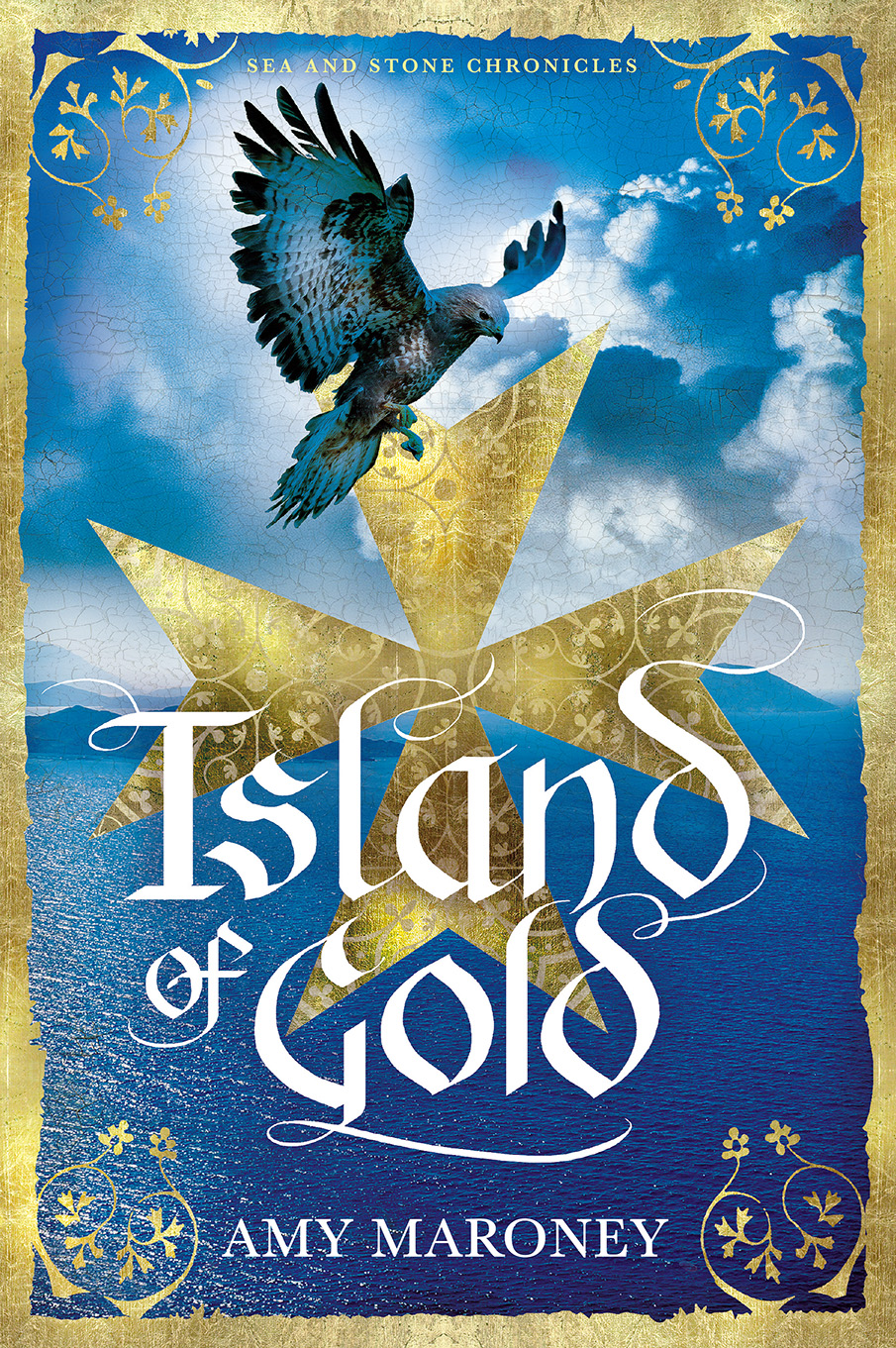
The Howling of Wolves – A Conversation with Paula Lofting
Paula Lofting has published two novels in her family saga featuring, among other well known figures (like Harold Godwinson), the fictional family of Wulfhere, a thegn in Saxon Britain. For the short story anthology Hauntings, Paula brings us a story that comes out of one of those novels, pulling a thread from one scene and following it to give us an “off stage” look at one event in her bigger novel. It’s backstory for a very life changing happening in the life of one character.
So I invited Paula to have a conversation with me about the context of her novels and the story that developed from it for the anthology.
Let’s jump right in!
Hi, Paula! I’ve often told you that you write family dysfunction with expertise. Before I start asking specific questions about the story, tell me about this family. Why are they so messed up?
They’re most likely the way they are because I have a habit of tormenting them! Haha! That aside, I suspect it mainly has something to do with the parents and perhaps their own upbringings. Wulfhere, who is my family’s father, had a harsh childhood. His father was a no nonsense man who beat his sons into shape and ruled with an iron rod. Wulfhere promised himself he wouldn’t treat his children the way he was treated, but the more he ages, the more the experiences of his childhood begin to affect him, that and the combat stress he has developed after battles. Added to that, his difficulty in managing his very high maintenance wife, guilt over an illicit affair, and a dangerous bloodfeud, all become a recipe for major dysfunction. He begins to behave in ways he never thought he would. He goes from Mr Laidback, happy and contented husband and father, to a drunken, violent, selfish, excuse for a husband and father! Not the attractive hero everyone was meant to love.
As for the children’s mother, she has her own issues with her husband’s behavior, which also spill out into her parenting.
Wulfric is a twin, and from what I know of twins, the kind of closeness they share is incomparable to any other relationship. So when Wulfwin dies, Wulfric has a really hard time. “Half of me has died,” he says at one point. So his desire for vengeance isn’t shocking. “I don’t want to bide my time, I want to kill Helghi now.” What should a reader get from this about Wulfric? Is it him, is it his culture, is it a combination of both?
There are always many factors that make up someone’s persona, I guess we have to add into their own upbringing, their class, their childhood experiences and their culture and time period. Wulfric had a happy childhood, he and his twin did everything together, shared everything. They were like an island, insular and separate, mischievous, and troublesome toward their younger siblings. They had always seemed as bad as each other, but in The Howling, it becomes clear that Wulfwin was the emotionally stronger, more dominant twin. It’s evident that when he was alive, Wulfwin called the shots, and even in death, Wulfric does whatever his twin wants though we see him beginning fight back a bit.
And for a young man in the throes of his early manhood, brought up in the Saxon era, when blood-feuds were common, it is not surprising he wants to find blood justice for his brother. It was very much an eye-for-an-eye type civilization although there were laws guarding against people doing harm to each other, such as owing compensation for murder, the price set according to the victim’s status. In the case of murder, one could demand blood or money. I assume many would have chosen money, but if money was less important than the loss of a kinsman, pride would come into it too. In Wulfric’s case, having to live without his twin in his life was too much to bear, so nothing would appease him but revenge.
Earl Harold tells Wulfric to take his accusations to the Hundred Moot, the court. Tell us about the Hundred Moot. Why was Wulfric so skeptical he’d find justice there?
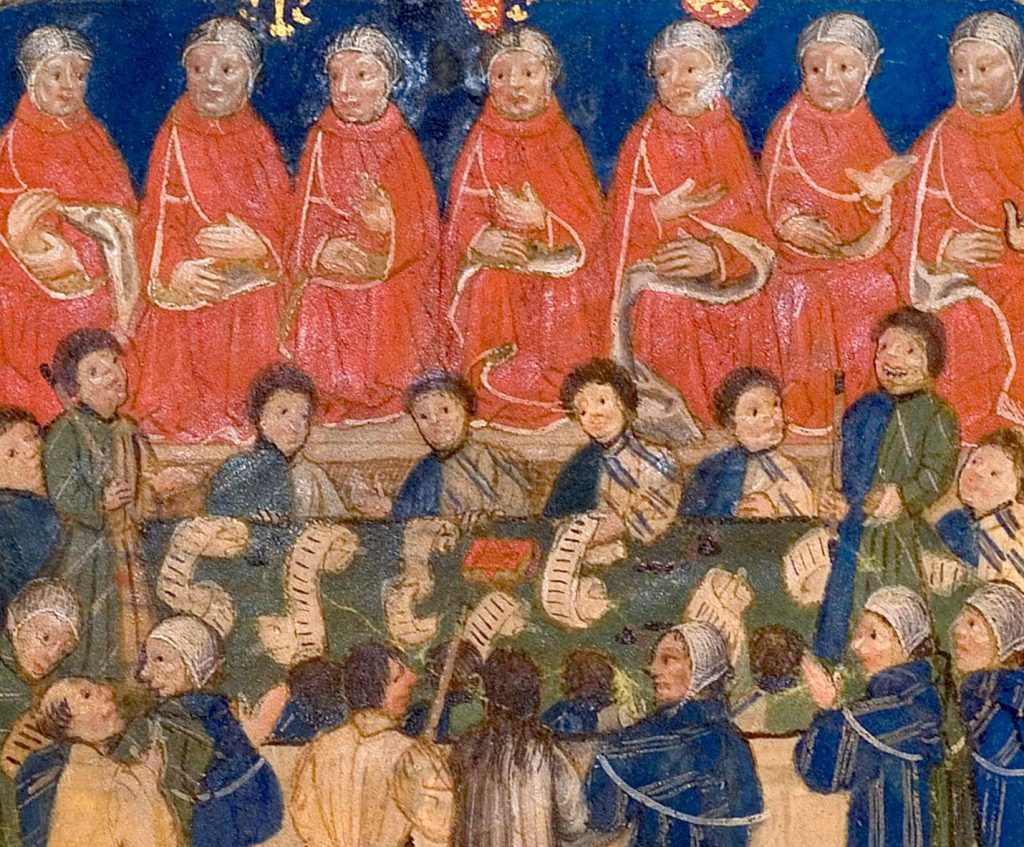
The ‘hundred moot’ was the local court and had something to do with the way the land back in Anglo-Saxon times was divided up. England was divided into earldoms, then into shires or counties, then into hundreds. A hundred was supposed to have been based on the hide system, the hide being the amount of land a chieftain would need to feed his family. A Thegn, by the 11th century was a landholder and needed to own at least 5 hides. The moot was where the law was dished out and any business or complaints men had could be taken there and justice administered probably by the hundred reeve.
I suppose for Wulfric, he was skeptical that justice for his brother would be achieved by the moot because when Wulfwin died, he died in battle, and everyone believed that this could not be proven as murder. In those days all the accused had to do to get off an accusation or charge was to find 12 men who would vouch for him as innocent. I can see why he would not have had any faith in this system. Anyone could be bribed, I suspect.
One of my favorite scenes in the story is between Wulfric and his sister Freyda, who, in your novels, have not had much to do with one another. The touching scene you write for the short story shows us another side to Wulfric because Wulfric shows some compassion for a horrible thing that happened to Freyda in the novel. Tell us something about Wulfric’s unusual reaction to his sister.
I added the scene in because Wulfwin’s death had brought about quite a psychic change in him. He had followed his twin in his dastardly ways, teasing and pranking his younger siblings which had also had disastrous affects for them. But without Wulfwin, Wulfric felt very alone for the first time in his life and something was subconsciously changing in him. He was now 16 and considered a man in many ways. A boy of 15 was able to lead an army according to his status. Wulfric was growing up and he realized that he was going to have to make amends with his siblings if he didn’t want to be treated like an outcast. When he sees Freyda distraught at having to explain her part in their baby’s death to her husband on his return home from campaigning, he is suddenly filled with an emotion he’d only ever reserved for his twin. He has nowhere else for this emotion to go and his natural instinct is to comfort her, rather than to be mean to her which is what most likely would have happened if Wulfwin had been there too.
Wulfric hears the howling of wolves. How is the wolf significant to Wulfric, and then again to the Saxons in general?
Many civilizations had myths about animals being their spirit guide and the Teutonic peoples of Europe were like many others whose cultural beliefs stem from similar old myths and legends. These stories were not written down by Wulfric’s ancestors but told around their hearth fires at night and handed down form generation to generation until Christianity came and changed the pagan mindset and replaced it with God. But some things stuck and in Wulfric’s ancestry was the belief that they came from wolves who developed gradually into people who retained the wolf as their spiritual side of themselves. Wulfhere’s family had a strong tradition of believing in their wolf persona, despite the advent of Christianity, and though Wulfhere’s mother and his wife had tried to do away with this custom, it was still there in the background. This is why they refer themselves to the Wulfsuna, the Sons of the Wolf.
In your novels, readers have come to know Wulfric and Wulfwin as hard youths, but this story casts a more sympathetic side to Wulfric. Was this hard to do, and what do you want readers to learn about Wulfric from this story?
No it wasn’t hard. I tend to allow my characters to lead their own threads, in fact my initial idea was that Wulfric would carry on doing the same nasty things he’d done to people with Wulfwin, but somehow Wulfric seemed to want to change. After all, he is only human, and even Wulfwin was only human too, it’s a shame he never got the chance to change.
The main thing though, is this change isn’t suddenly going to turn him into a saint overnight, because he still has a lot to learn about himself, but what happens in the end of the story affects him forever.
Wulfric is sixteen, and in his day and age, he was a man. We see Wulfric stand up to his father, accuse him of cowardice. But when his son challenges him, Wulfhere says something really significant, particularly considering his past actions and attitudes about the feud precipitating this scene. “Do you think it has not torn my heart out? You know nothing of what I have just been through in my head. Fighting is easy! … It takes more courage than you will ever know, to see your daughter stolen from you and not be able to do anything about it.” This is a very different Wulfhere than we’ve seen in the past. Not long before this, he wouldn’t have agreed. What changed?
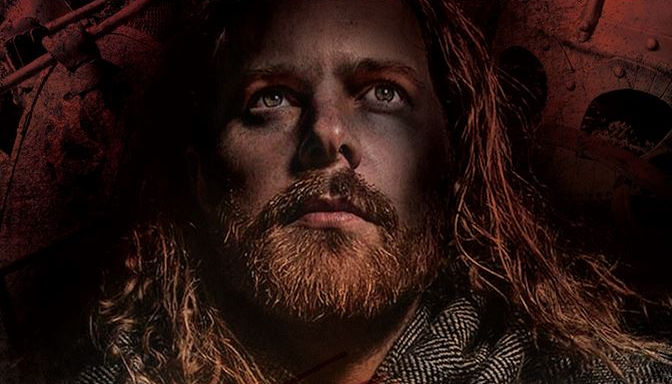
I take it you mean that he wouldn’t have agreed to allow Helghi to take Winflaed?
Yes, I agree – he wouldn’t have given in so easily in the past, and he almost didn’t until Tigfi threatened him with homelessness. And he knew Tigfi meant it. To have been without a home would have meant starvation, humiliation and outlawry for all his family. He couldn’t risk that. Not in his state. He was no longer the same man. He had come back injured from battle, minus a precious son, he was losing the fight of wills between him and Helghi, his lord was not on his side, he’d lost a brother and a good friend to the feud and was about to lose a daughter to it. The fight went from him as easily as a candle can be blown out when Tigfi threatened him with that. It was the last straw. He could see all around him his life, his reputation as a warrior and a king’s thegn was crumbling. If he didn’t have his land he would have nothing. He could not let that happen.
Wulfwin’s killer. Be honest. Without any spoilers, did you know who it was going to be when you set out to write this story?
Yes, it was the hand that did it!
Hmmm… okay. Going to be cagey about it, are we? Writing this little spinoff scene from your bigger novel must have been both challenging and rewarding. What was the most difficult thing about writing this short story?
Marrying up the timeline and showing that damned scene at the end where they all come for Winflaed from Wulfric’s point of view instead of Winflaed’s as it is in The Wolf Banner and making sure I didn’t change any of the dialogue!
Do you already have a master plan for weaving this into your next novel?
Yes, its there, but not in detail.
And speaking of your next novel, when might we see that coming out?
Hopefully early 2022.
Anything else you’d like to add?
I really enjoyed making Wulfric the focus of this tale for he is usually a secondary character. It was fun giving him more of a leading role. And writing Wolf’s Bane is so much more inspiring, because it has given the story another dynamic. When Tovi comes back the interaction between the two brothers is going to be explosive.
Thank you so much for these very thought-provoking questions. Its amazing how I have had to delve into each character’s psyche to answer them and its been a lot of fun!
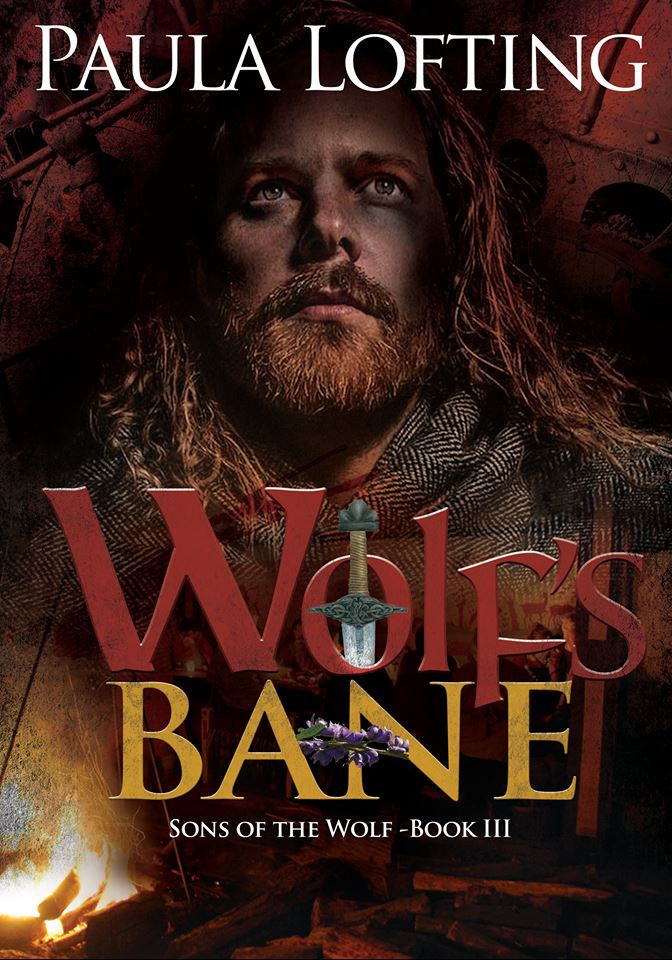

It has been Paula’s ambition to one day be a writer since she was a little girl, coming home from school to sit at the table with her notebook and write stories that buzzed around in her head. A prolific reader, she loved nothing better than to spend weekends with a book in her hand. Earliest influences such as Rosemary Sutcliffe, Leon Garfield, Charles Dickens, C.S.Lewis, inspired an interest in history. Unfortunately life got in the way, and it was not until much later in life that she would achieve her lifelong aspiration and write the book she had promised herself she would one day write.
Her début novel, ‘Sons of the Wolf’ was first published with the assistance of SilverWood Books in 2012. More recently it was republished under her own publishing company, Longship Books. It is a story set in the years leading up to the Norman Conquest of England and the first in the Sons of the Wolf series, about this amazing time in English history. Her second novel, The Wolf Banner, has also been published in paperback and kindle and the third, is a WIP, Wolf’s Bane and will be published later this year in 2021.
She has always admired the works of Sharon Penman and Bernard Cornwell, Edith Pargetter and Mary Stewart, amongst many others. History is a great love of hers and her interest in the subject goes beyond that of the keyboard. She also enjoys Anglo-Saxon re-enactment with Regia Anglorum, a great source of research for her writing. Paula says: “Ignore those who say you should write what is trending. Write for yourself first and foremost, for if you don’t enjoy what you write, then you cannot expect others to.
Visit Paula’s website here, and purchase here books here.
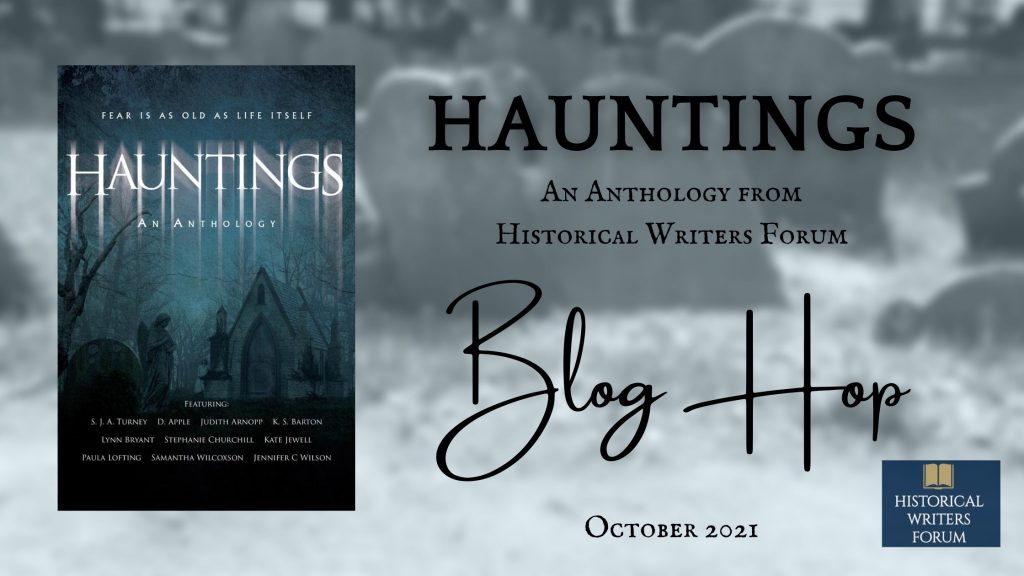
October 3rd
Sharon Bennett Connolly https://historytheinterestingbits.com/2021/10/03/book-launch-hauntings/
October 4th
Judith Arnopp and Simon Turney https://juditharnoppnovelist.blogspot.com/2021/10/s-j-turney-joins-me-on-hwf-hauntings.html
October 5th
D. Apple https://www.danielleapple.com/2021/10/04/interview-author-lynn-bryant/
October 6th
October 7th
Paula Lofting https://paulaloftinghistoricalnovelist.wordpress.com/?p=4597
October 8th
Samantha Wilcoxson https://samanthawilcoxson.blogspot.com/
October 11th
Simon Turney https://sjat.wordpress.com/2021/10/11/the-inspiration-behind-the-haunting-of-edenbridge-castle-by-judith-arnopp/
October 12th
Lynn Bryant http://www.lynnbryant.co.uk/hauntings-an-interview-with-d-apple/
October 13th
Jennifer C Wilson https://jennifercwilsonwriter.wordpress.com/blog/
October 14th
Stephanie Churchill https://stephaniechurchillauthor.com/wp-admin/post.php?post=648&action=edit
October 15th
Sharon Bennett Connolly https://historytheinterestingbits.com/2021/10/15/book-corner-hauntings/
